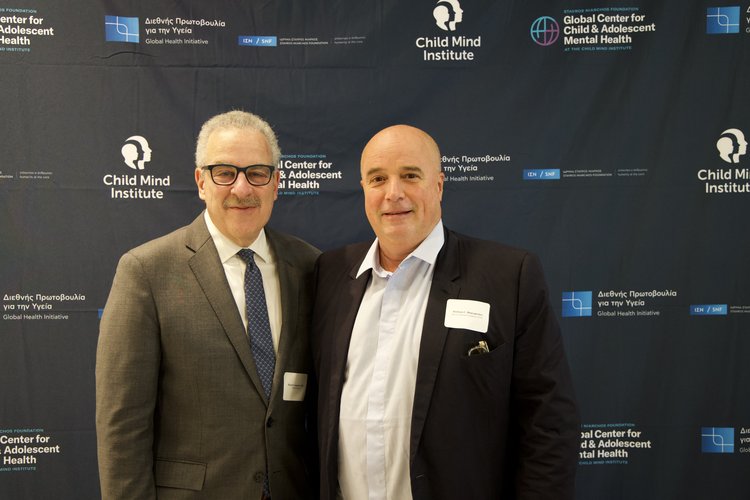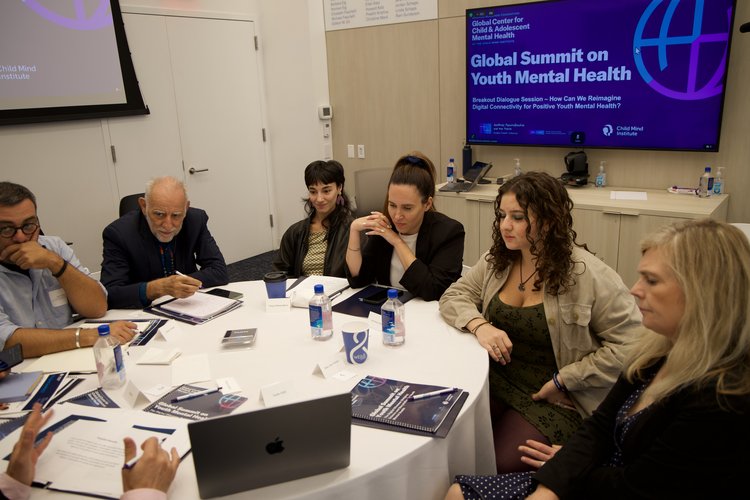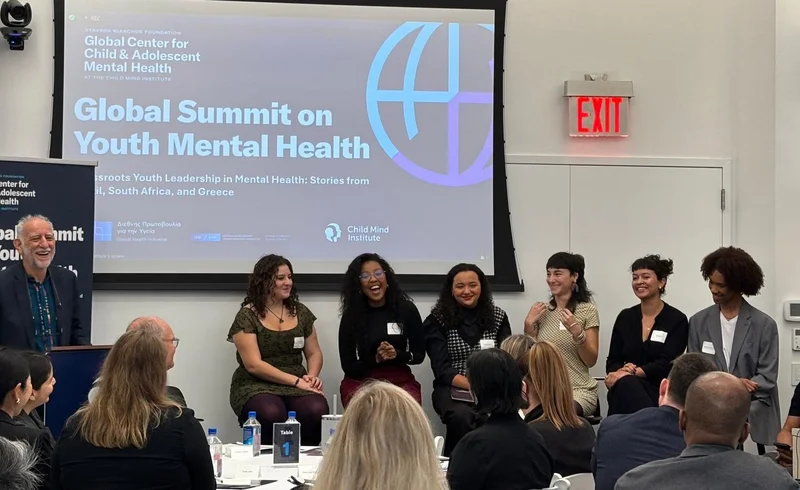YES in New York: Global Summit on Youth Mental Health and Technology
Child Mind Institute, Stavros Niarchos Foundation, and the SNF Global Center for Child and Adolescent Mental Health amplify the voice of the next generation
On Monday, September 22, 2025, a global summit titled “The Digital Dilemma: Bridging Science and Storytelling for Youth Mental Health” took place in New York City. The Child Mind Institute, in collaboration with the Stavros Niarchos Foundation (SNF) and the SNF Global Center for Child and Adolescent Mental Health, brought together young mental health leaders from around the world, scientists, policy leaders, and content creators to reimagine how the next generation relates to technology and mental health.
Hosted at the CMI headquarters, the Global Summit on Youth Mental Health opened with remarks by Dr. Harold S. Koplewicz (MD, Founding President and Medical Director of the Child Mind Institute) and Andreas Dracopoulos, Co-President of the Stavros Niarchos Foundation, followed by a presentation of key findings on technology use among childrens and adolescents.

The first panel featured young representatives from Brazil, South Africa, and Greece, who shared their lived experiences and highlighted the importance of grassroots initiatives. The discussion was moderated by George Moschos, lawyer and Director of the Youth Engagement Scheme (YES) of the Child & Adolescent Mental Health Initiative (CAMHI).
The second panel brought together Felipe Neto, a popular Brazilian content creator, and Dr. Koplewicz, who discussed the influence of social media and the power of youth voices in shaping new narratives around mental health.
The program continued with thematic workshops on digital connectivity, the launch of a new innovation challenge for mental health interventions in Brazil, and a third panel with representatives from leading global organizations—including the World Health Organization, UNICEF, and the World Economic Forum—who explored ways to strengthen youth participation and support youth-led organizations.
The summit gathered a wide network of international organizations working in mental health, education, and social innovation. Among the participants were the Wellcome Trust, United for Global Mental Health, the Global Mental Health Action Network, the Clinton Foundation, the McKinsey Health Institute, the African Venture Philanthropy Alliance, Orygen, Google.org, and initiatives that elevate youth voices, such as Greece’s Youth Engagement Scheme (YES), Brazil’s Juntô (Youth Council on Mental Health), Young Futures, and Young Peacebuilders. Their presence underscored the summit’s global character and the importance of cross-sector collaboration in developing innovative, culturally informed solutions.
Greece had a strong presence through the participation of YES representatives. In the first panel, which showcased youth leadership in mental health, two Greek teenagers shared their insights, concerns, and solutions—shaped by the needs and ideas of young people themselves.

The summit concluded with a call to combine science, storytelling, and youth action to create sustainable solutions for mental health in the digital age.
Reflecting on the participation of the Greek YES team, George Moschos stated:
“The presence of the Youth Engagement Scheme (YES) at this important international summit amplified the voices of adolescents themselves, who can play a crucial role in shaping mental health policy and practice. Our three-year experience with YES in Greece has shown that when young people are given space and trust, they express their concerns, needs, and proposals with maturity and creativity—insights adults must listen to and take seriously. YES proves that youth participation is not just desirable; it is essential if we are to build a healthier and fairer future.”
To learn more about the Youth Engagement Scheme (YES), click here.
The YES program has been officially approved by the Greek Ministry of Education for the school years 2022–23, 2023–24, and 2024–25 (Ref. No. Φ.2.1/ΜΓ/96512/105996/Δ7, 17/9/2024), including the organization of discussions and dialogue-based activities in schools. You can find the official approval document here.
The program is implemented as part of the Stavros Niarchos Foundation (SNF) Global Health Initiative in partnership with the Child Mind Institute.




